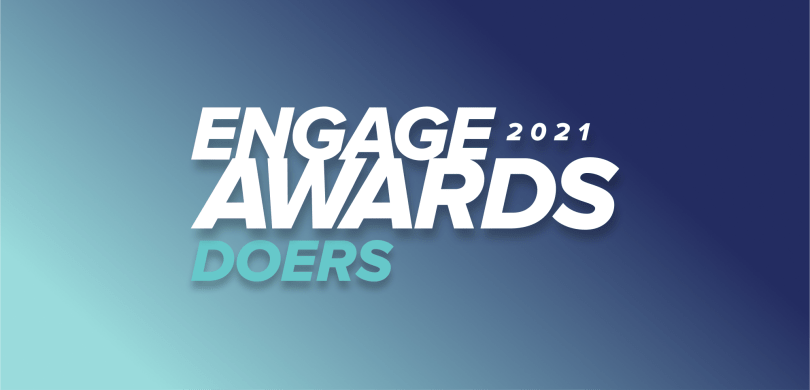Drupal sites launched on Acquia Cloud since 2015
The Client
With nearly 4 million residents, the City of Los Angeles is the largest city in California and the second largest in the United States. Through its official website, lacity.org, the City provides information and services for residents, visitors and businesses.
The City of LA’s Information Technology Agency (ITA) employs 465 Information Technology professionals organized into 19 divisions with an annual operating budget of $125 million. ITA staff are responsible for providing classic IT services, such as computer support and data networking, and progressive digital services, including the 3-1-1 call center, enterprise social media and more.
The Situation
The mission of the City of LA’s ITA is to provide “responsive, responsible and excellent tech” across the municipality but, after careful analysis, ITA determined that their website platforms were preventing them from reaching these goals. Maintaining the city’s static HTML websites and content management system (CMS) proved to be difficult and time-consuming for IT staff to maintain and for end users to update.
In May 2020, the ITA needed to begin to upgrade its 35 Drupal 7 websites that were hosted on Acquia Site Factory to Drupal 8. They needed to complete this by May 2021 while simultaneously juggling new Drupal website requests that were anticipated throughout the year.
The Challenge
ITA staffers faced a number of challenges with maintaining websites, especially in the areas of site stability and client satisfaction. City websites that were hosted on local servers were prone to crashing in high-traffic, heavy-stress situations and backups were expensive to maintain. Additionally, developers were struggling with juggling feature updates and security updates with website content updates, frustrating users. Since developers were overwhelmed with maintenance tasks, they had little time for design, making it difficult to adapt sites to changing design standards. And upgrading the 35 Drupal 7 websites to Drupal 8 was a daunting task that required a ground-up rebuild of each site.
The Solution
In 2015, the City of Los Angeles worked with Acquia to migrate three of its websites to the Drupal content management system (CMS) and hosted on the Acquia Cloud.
Having worked with Drupal on a small number of sites since then, the City of LA continued its digital transformation with Acquia Site Factory. Acquia Site Factory allowed the ITA team to deploy websites in minutes; Drupal’s easy-to-use CMS along with ITA’s flexible templates have empowered non-technical staffers in other departments to make their own site updates and IT staff no longer have to worry about stability issues; Acquia’s platform has served the City’s sites through earthquakes, fires and pandemics.
This has allowed the ITA’s developers to focus on higher-value tasks like building new features and functionality for their websites. From building their own custom code in Drupal and tapping into the vast number of open source code from the Drupal community, the ITA’s web teams have been able to deploy new features for their websites quicker than ever before. For example, by utilizing APIs and leaning on Drupal’s API engine, the City’s website can show residents who are requesting City services data from the City’s 3-1-1 call center data, showing how many times the City has assisted on other calls in their neighborhood. The website can also feed news and calendared events to other websites easily through its own API.
ITA has also enhanced site personalization. For example, when a site visitor enters their address, the site delivers neighborhood-specific information, like contact info for their councilperson, parks data that shows local recreational spots and more — without requiring the visitor to gather the information from a variety of different websites.
By relying on the Drupal platform, ITA was able to tackle the Drupal 8 upgrade through a division of labor. Once the ITA web services team had developed its Drupal 8 template, Acquia Site Factory allowed the developers to build and deploy websites using that template quickly and efficiently. Drupal also allowed non-technical users to assist with the migration by providing them the interfaces to contribute website content, allowing developers to focus on building out the website features. By clearly defining user roles between developers and site content contributors, the process was made easier
The Results
Drupal’s CMS has proven to be a popular tool for end-users to update their websites and Acquia has provided a powerful and efficient way to deploy them. The City of LA began with 3 Drupal website launches in 2015 and they were received so well that they have launched 68 Drupal websites since — all mobile-responsive and ADA-compliant. Traffic and engagement time have increased across the City’s sites and the sites have received national awards from CIO Magazine and the Public Technology Institute, among others. Drupal’s APIs have also allowed the team to share data from the website into other channels like chatbots and smart speaker apps. Staff job satisfaction has also increased.
Building on these successes, the ITA’s future plans include further investments in user experience and introducing more refined user personalization through an “Angeleno Account,” which will allow residents access to multiple City websites and apps with a single profile and login. Once again, Drupal will help make these integrations easier.
By May 2021, ITA had met its deadline by successfully migrating 35 Drupal 7 websites to Drupal 8, while also releasing 10 new Drupal websites directly on Drupal 8. In addition to upgrading the back-end platform, the team also added several new features into its template in order to make the websites it released on the Drupal 8 platform more modern, functional and fresh. Migrating to the Drupal platform has finally allowed ITA’s web team to achieve its goal of providing “responsive, responsible and excellent tech” to its end users and constituents.

